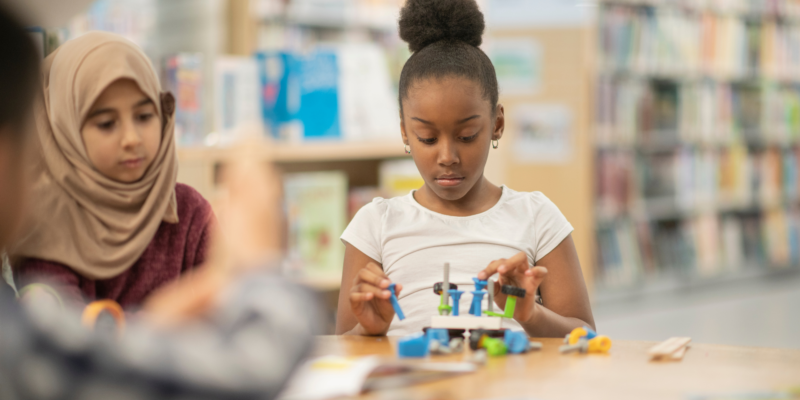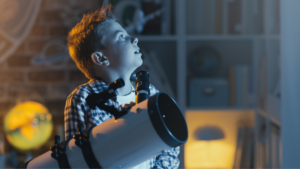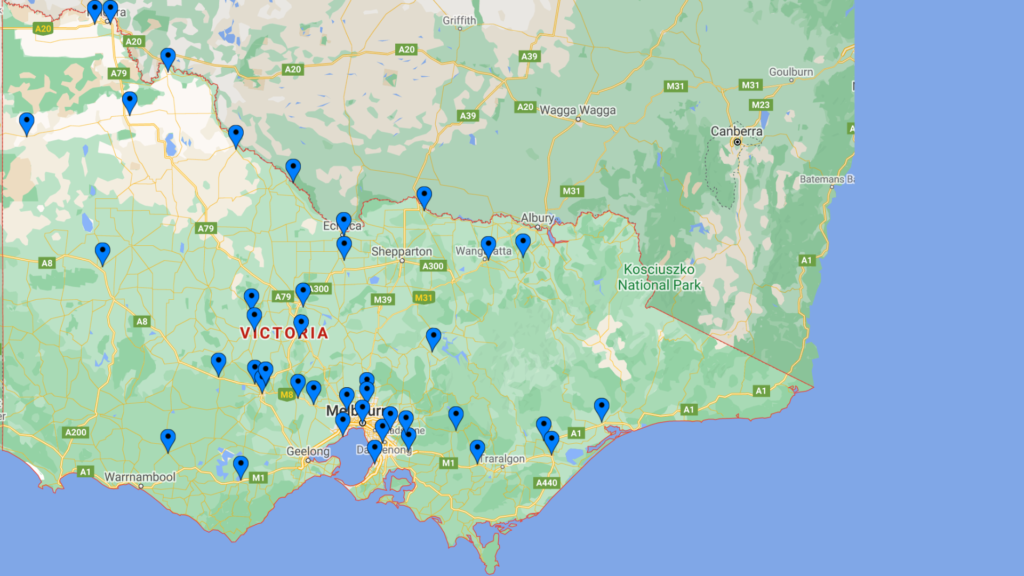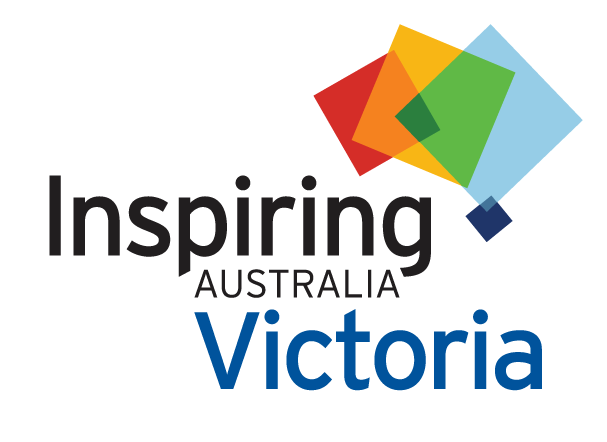Regional Science Champions: a wave of STEM across Victoria

Victorian libraries provide us with a place to learn, create, and explore. Last year, the Regional Science Champions program sowed seeds of ideas for science outreach activities across the state. Since then, the program has grown, and the effects have rippled as more and more librarians share science and foster STEM skills within their communities.
A partnership network between Public Libraries Victoria, Museums Victoria and the Royal Society of Victoria, supported by Inspiring Victoria, aims to support areas with limited access to resources for STEM education. Since the program’s inception, forty-three librarians have become Science Champions in their local communities. They were guided by Kate Barnard, Science Programs Manager at Scienceworks, to channel their enthusiasm for science into developing engaging STEM programs for their libraries and communities.
‘Inspiring Victoria loves working with libraries and their communities,’ says Rena Singh, Inspiring Victoria Manager. ‘We try to deliver science engagement in a diversity of places and this project has enabled us to invest in building the capacity of regional areas to increase their skills and knowledge and continue to build this into local communities.’
 In a series of training workshops, Kate emphasised the importance of fostering STEM skills in children. Kate’s focus was on empowering librarians to facilitate activities that engage and build skills rather than those that convey many scientific facts. Science and STEM are not the same – and STEM is not simply the addition of science, technology, engineering and mathematics. Rather, STEM is an integrated exploration using problem-solving, investigation, experimentation, learning-by-doing, and most importantly, play.
In a series of training workshops, Kate emphasised the importance of fostering STEM skills in children. Kate’s focus was on empowering librarians to facilitate activities that engage and build skills rather than those that convey many scientific facts. Science and STEM are not the same – and STEM is not simply the addition of science, technology, engineering and mathematics. Rather, STEM is an integrated exploration using problem-solving, investigation, experimentation, learning-by-doing, and most importantly, play.
The skillsets and geographical spread of the Regional Science Champions was diverse, and they established a community forum in which they could share ideas and experiences. Some were already delivering STEM-based activities at their libraries prior to the program while others faced various barriers, such as a lack of confidence in scientific knowledge. But Kate reassured them that you don’t need to be an expert to share STEM.
Building on Storytime sessions is an excellent example of how STEM learning can be seamlessly integrated into library activities. Pamela Allen’s book, Alexander’s Outing, is the story of a duckling that falls down a deep hole. He was rescued by characters filling up the hole with water for him to float to the top. This story introduces the idea of buoyancy and children can investigate other possible ways to save the duckling. Similarly, Rosie’s Walk is a story about a chicken who is being chased by a fox – how might children build something to keep Rosie safe? There are STEM concepts in more stories than we might realise.
Scienceworks has also developed lending kits packed full of resources to assist librarians in delivering hands-on activities. ‘These kits are low floor, high ceiling, and wide walls,’ says Kate. ‘Low barrier to entry, you can take them a really long way – the sky is the limit – and there is a great breadth in the way they can be used’.
One kit that librarians can borrow has an engineering focus. Workshop participants are challenged to build a fun (yet safe) rollercoaster track, to construct with blocks, cardboard and screws, and to work a piston. These can each be tailored to different ages and audiences, whether it’s about watching how a ball might roll along a rollercoaster track or building intricate twists and turns by factoring momentum.
 There are plenty of bots to unbox in the robotics and coding kits. Specifically aimed at children ranging from 3-15 years old, workshops with three different robots involve free-play and a series of games. Participants can try their hand at coding to instruct their robots to play soccer or navigate obstacle courses.
There are plenty of bots to unbox in the robotics and coding kits. Specifically aimed at children ranging from 3-15 years old, workshops with three different robots involve free-play and a series of games. Participants can try their hand at coding to instruct their robots to play soccer or navigate obstacle courses.
Children can reach for the stars with the third kit focused on astronomy and space science. It includes telescopes and a planetarium software to travel around the Universe, a Merge Cube to explore the galaxy in the palm of their hands using augmented reality, and robots to program just like a Mars Rover.
‘The Loan Kits we have funded provide designated resources so that regional Victoria has the same opportunity to engage in the wonder of Science and Technology as their metropolitan friends,’ says Rena.
 Armed with these resource kits and full of new ideas, the Regional Science Champions are preparing exciting activities for National Science Week. But this is only a taste of what is to come. The partnership network aims to foster a love of science and help build STEM skills in Victorian communities all year round.
Armed with these resource kits and full of new ideas, the Regional Science Champions are preparing exciting activities for National Science Week. But this is only a taste of what is to come. The partnership network aims to foster a love of science and help build STEM skills in Victorian communities all year round.
‘It was a really inspiring and motivating course,’ says Davida McDonald, Library Officer at Colac Community Library & Learning Centre. ‘Kate Barnard was a fantastic convenor and made me realise it didn’t have to be hard to introduce STEM to my preschool program…I’m overflowing with ideas & ways to expand STEM to all ages at our library.’
The Regional Science Champions are brimming with ideas to foster STEM exploration, design and problem-solving skills in their communities. While the librarians took different things away from Kate’s lessons and the program, it is clear they all gained ideas for facilitating programs, resources, and greatly benefited from their connection to one another. All three organising bodies are very proud of initiating such a successful program, and after four iterations, we hope to see it continue and bloom as it expands in 2022.
‘[This] project has harnessed creativity, curiosity and passion for learning among library staff to deliver exciting and engaging STEM activities in their communities,’ says Angela Savage, CEO of Public Libraries Victoria. ‘The impact of PLV’s partnership with Museums Victoria and Inspiring Victoria is ongoing, with library staff sharing their experiences and ideas for delivering STEM programs across the state.’

